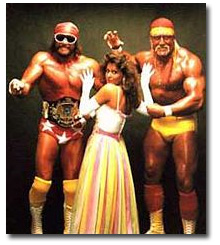 We’re already looking at the results of an Activision Vivendi union and now Electronic Arts is slowly working towards taking over Take-Two. Activision Blizzard is larger than that of EA but would the Take-Two buy-out grow EA into the number one publisher once again?
We’re already looking at the results of an Activision Vivendi union and now Electronic Arts is slowly working towards taking over Take-Two. Activision Blizzard is larger than that of EA but would the Take-Two buy-out grow EA into the number one publisher once again?
For gamers, it’s changing the map of the industry. We grew up with many of these seemingly big companies but their all clamoring together to make the next big mega-power. While they struggle for ultimate domination we, the gamers, are going to either benefit from the competition or become victims, or perhaps a little of both.
Let’s assume EA and Take-Two form one entity, similar to the the Destructicons forming “Devastator,” they can reign hell upon the earth and anyone under their mighty fist shall perish! That might be a bit of an exaggeration but it’s safe to assume they’ll wield mighty power, more than ever before and their epic foe will be Activision Blizzard and, perhaps, Ubisoft. In a battle for sales and consumer acceptance the companies will be willing to out do each other at every step with huge funds at their disposal.
As a consumer, competition is a great way to produce innovation, technological advancements and excitement in the industry. These giant development houses are only this large because we’ve given them our hard earned money in return for entertaining video game titles. World of Warcraft is a major player in sucking money from our wallets in a consistent, addictive, manner while Guitar Hero explores new possibilities in music and rhythm gaming and controller accessories.
Electronic Arts and Take-Two would have to combine and push ground breaking changes in all their game franchises to compete. Grand Theft Auto must top their already huge, or, perhaps, release smaller games on the DS. Their sports franchises will go unhindered into the night as the best and only solution to your football desires. John Riccitiello, EA’s CEO, has already acknowledge the lack of excitement and creativity from the EA game library and plans to change it by expanding new intellectual properties and, recently, added a few “small” purchases to their list including BioWare and Pandemic.
While Activision has found a fairly new niche with Guitar Hero we’re waiting to see if EA can respond with their casual games division or with some other secret projects to entangle both gamers and non-gamers. In many ways, this is a bright side to the mergers and acquisitions because we’re all getting something new and creative as talent and ownership changes hands.
Unfortunately, large companies like this can help destroy any chance of small uprisings of new studios by purchasing all the shelve space in retail outlets as part of their ongoing power struggle to be number one. They’ll be able to relax on franchises that have been flat-lining over the years, we may see no progress in the Madden series when Take-Two cannot compete at all in the space while under the wing of EA.
Indy developers will find it harder to compete with block buster titles because game engines are all being taken “in house” by the larger firms because they’ve got so many internal development studios they will need consistent proprietary game engines to hold their edge against their mega competitors. This leaves the indy companies with huge licensing expenses from a larger firm or going with a lighter less stable alternative. A few rise to the occassion like GarageGames to relieve some of the pressure, but how long before they’re bought up?
Perhaps smaller studios with great tools will rise to meet the demands of the Indy developers but they may fall under the mighty dollar if an EA or Activision Blizzard buys them out to “steal” the technology for themselves (or stop others from gaining unwanted advantages.) These large companies will fight tooth and nail so they can gloat positive trends to their share holders and make deals with the devil to push stock value through the roof.
These large studios will be looking to improve year-over-year profits and value to keep growing in the industry. It will not be about the game anymore, but about the dollar. Of course, the managment structures behind the companies will have to hold up and work well together to avoid becoming the next Sierra.
You can only be a mega power for so long before something changes your future. Randy Savage never saw it coming when Hulk Hogan ruined their alliance with three massive leg drops.
